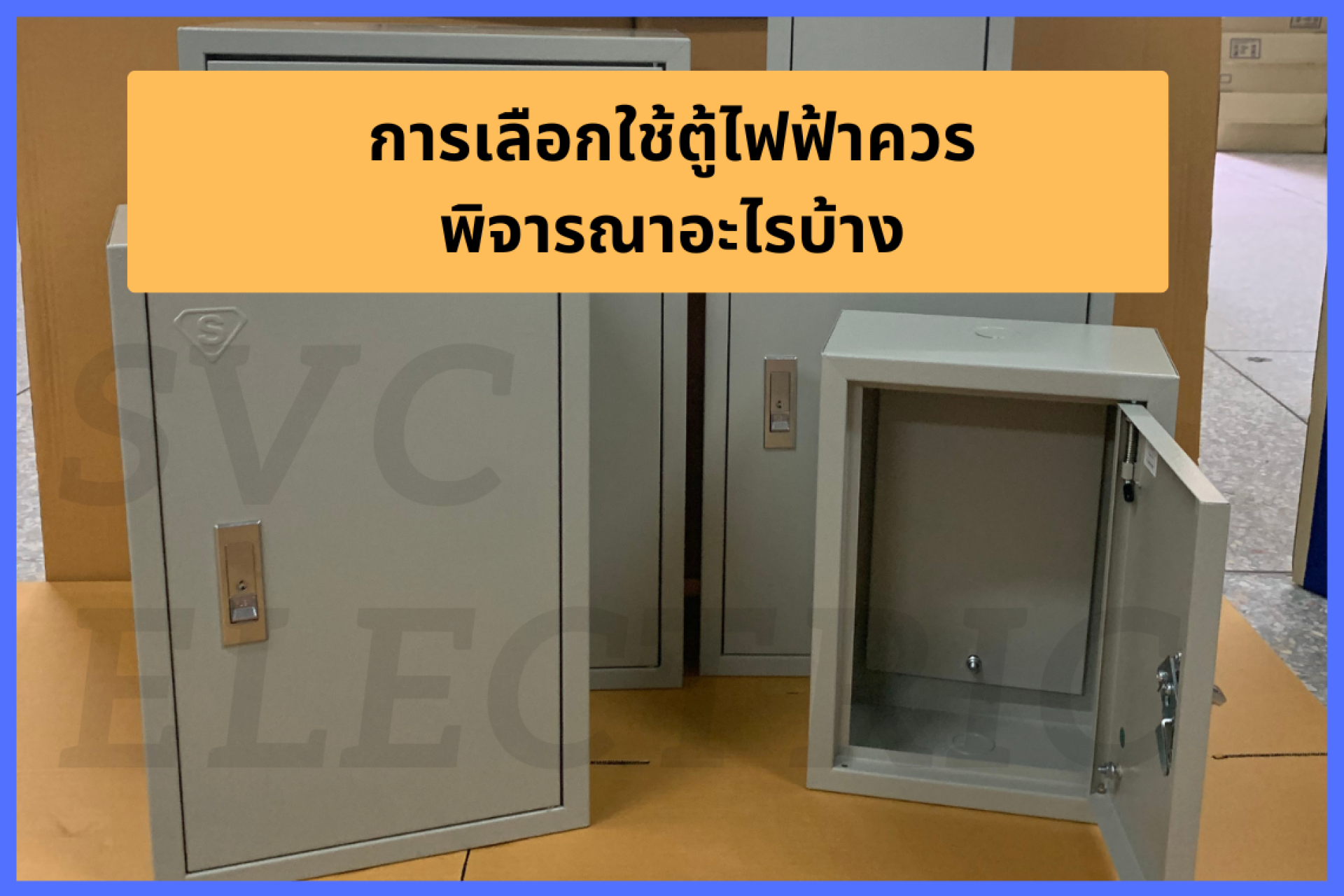What to Consider When Choosing an electrical Cabinet? | SVC Electric
Last updated: 5 Sept 2024
650 Views

Selecting the right electrical Cabinet is crucial for effectively protecting and managing your electrical system at home or in your business. Therefore, when choosing an electrical Cabinet, consider the following factors:
Size of Electric Cabinet
- Sizing Assessment: Start by assessing the size of the electrical equipment to be installed within the cabinet. It should provide ample space for organized wiring. Choosing the right size enclosure will simplify electrical management and reduce the risk of electrical short circuits.
- Future Expansion: Consider potential future expansions of your electrical system. The electrical cabinet should have enough space to accommodate new equipment without needing to replace the electrical cabinet.
Materials Used in Production
- Steel cabinet: Steel is a strong and durable material, suitable for environments with high impact or stress. However, steel can be heavy and may rust when exposed to moisture.
- ABS Plastic Electrical Cabinet: ABS plastic is a durable material that is resistant to corrosion, lightweight, and easy to install. It does not rust and offers high flexibility, providing excellent impact resistance. It is suitable for use in environments with moisture or chemicals.
Level of Protection (IP Rating)
- Meaning of IP Rating: IP Rating is a standard for dust and water protection, represented by two digits. The first digit indicates the level of dust protection (0-6), and the second digit indicates the level of water protection (0-8). For example, IP66 means the electrical enclosure provides complete protection against dust and can withstand high-pressure water jets from any direction.
- Choosing the Appropriate IP Rating: Select an electrical enclosure with an appropriate IP rating based on the usage environment. For example, IP55 is suitable for indoor areas with moderate humidity, while IP66 is ideal for outdoor areas or environments with high moisture levels.
Safety Standards"
- Certification Standards: Ensure that the selected electrical enclosure adheres to safety standards such as IEC or UL. Compliance with these standards guarantees that the enclosure has been designed and manufactured according to international safety guidelines. Utilizing certified enclosures mitigates the risk of accidents and electrical problems.
- Additional Standards: you may require an electrical enclosure that meets specific certifications, such as explosion protection for areas with flammable gases or dust.
Heat dissipation
- Effective Heat Dissipation: Heat dissipation is crucial for preventing overheating of electrical equipment. Choose an electrical enclosure with ventilation openings or an efficient cooling system, such as cooling fans or well-designed heat vents.
- Additional Cooling Devices: additional cooling devices may be necessary, such as heat sinks or liquid cooling systems, to prevent heat buildup.
Installation Flexibility
- Cable Management Flexibility: The electrical cabinet should offer flexibility in installation, allowing customization of the interior to meet specific needs. Features such as rails for mounting various electrical components and easy cable routing are essential.
- Installation in Limited Spaces: Select an cabinet specifically designed for installation in confined spaces. It should be compact while still offering sufficient internal space for the effective management of electrical equipment.
Maintenance
- Access to the Interior: Choose an electrical cabinet that facilitates easy maintenance and inspection. It should have accessible doors or panels for straightforward access to internal components, making cleaning and repairs convenient.
- Preventive Maintenance: Preventive maintenance is crucial. The electrical system and protective devices should be inspected at least annually to prevent potential issues.
Cost and Value
- Price Comparison: Price is an important factor, but the value of the electrical cabinet. should also be considered. Do not choose solely based on a lower price; evaluate the quality and durability to ensure a long-lasting and safe cabinet.
- Long-Term Investment: Investing in a high-quality electrical enclosure may have a higher initial cost but can reduce maintenance and repair expenses over time, making it a worthwhile investment.
Selecting the right electrical cabinet is essential for ensuring the efficiency and safety of your electrical system. Whether used in residential, industrial, or commercial settings, choosing the appropriate enclosure is crucial for guaranteeing the safety and durability of your electrical setup.
Contact us:
Line: @svcelectric
Call: 02-235-0265
Related Content
Steel and plastic electrical cabinets vary in strength, corrosion resistance, weight, and installation ease.
